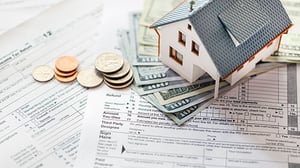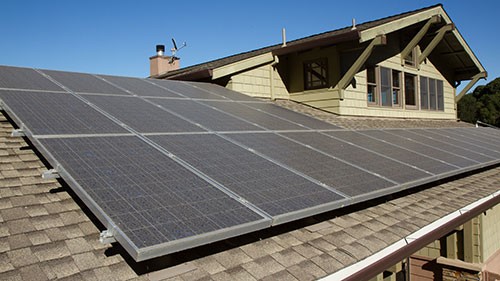2 min read
Ways to Lower Your Homeowner's Insurance Costs
Homeowner’s insurance is a necessary but costly expense to safeguard the money you’ve invested in your house. Yet you may be paying more for home...
Manage your everyday finances with convenient accounts, flexible cards, and personalized service designed to fit your life.
At First Federal Bank, we offer flexible mortgage solutions for almost any situation, helping you secure the right financing for your dream home.
Business banking offers secure financial management, streamlined transactions, credit options, and tools to help businesses grow efficiently and sustainably.

 Homeownership is an exciting achievement, but it’s also a huge responsibility. Entering into home-ownership when you’re ready is more important than doing so right away. Starting off on the right foot can positively impact future home-buying opportunities, while rushing into a situation you’re unprepared for can limit your options down the road.
Homeownership is an exciting achievement, but it’s also a huge responsibility. Entering into home-ownership when you’re ready is more important than doing so right away. Starting off on the right foot can positively impact future home-buying opportunities, while rushing into a situation you’re unprepared for can limit your options down the road.
Becoming a homeowner is an exhilarating accomplishment, but it also comes with immense responsibility. It's crucial to enter into homeownership when you're truly ready, rather than rushing into it. Taking the time to prepare yourself can have a positive impact on your future home-buying opportunities, while making hasty decisions can limit your options down the line.
Before taking the plunge and buying your first house, it's essential to have a clear and accurate understanding of your budget. This will help you confirm if you're truly prepared for the most significant purchase of your life.
One of the first steps recommended by financial expert Dave Ramsey is to calculate your income. Look at your pay stubs to determine your monthly take-home pay after taxes, healthcare, and retirement savings are deducted. If you have a reliable partner who will be co-signing on the house and contributing to the income, include their earnings as well. This will give you a clear picture of your monthly income.
However, it's important to note that most of this income won't be allocated towards your mortgage. To determine how much you can truly afford, subtract all your current expenses, such as food, transportation, insurance, charitable giving, clothing, family expenses, medical costs, and any discretionary spending. Remember to set aside some of your income for emergency savings as well. Since you'll no longer be paying rent and utilities once you move into your new home, you don't need to include those expenses in your calculations.
Whatever is left after subtracting your expenses, keeping some room for unexpected costs, can be allocated towards your first house.
Once you have a clear idea of how much you can spend, you can start estimating the type of house you can afford. Give yourself ample time to study your desired location, monitoring home prices in different neighborhoods and considering factors such as age, style, and condition of the properties. Gradually, you'll develop a map of areas that fit within your budget and be able to identify good deals when you see them.
When determining your theoretical monthly payments, it's advisable to consider a 15-year fixed mortgage, as recommended by Ramsey. This option often offers better value than the standard 30-year mortgage. However, if a 15-year mortgage is not financially feasible for you, many first-time buyers opt for a 30-year mortgage and then refinance when their financial situation improves.
It's crucial to factor in expenses beyond the principal and insurance provided by your lender. Owning a home also entails property taxes, homeowner's insurance, utility bills, and property maintenance costs. These additional expenses should be considered when estimating your monthly payment for the house.
Ramsey advises that your monthly house payment should not exceed 25 percent of your take-home income.
If the estimated cost of owning a house exceeds this threshold, you have two options: either look for a more affordable house or find ways to increase your income. Since this is your first home purchase, experts generally recommend prioritizing the former, as it allows you to save for initial costs.
It's essential not to overlook the initial expenses associated with buying a home. In addition to the recurring monthly payment, the initial sale can include costs such as application fees, inspection and repair expenses, realtor fees, closing costs, taxes, and moving expenses.
Above all, saving for the down payment is crucial. It is advisable to pay at least 10 percent of the total house price upfront when signing, although aiming for 20 percent is recommended to avoid private mortgage insurance, as suggested by James McWhinney of Investopedia.
If you find that you need more time to save for a down payment, improve your credit for a better lending rate, find a better deal on a house, or secure a higher-paying job, don't hesitate to delay your purchase. Remember, this is your first home and doesn't have to be your forever home.

2 min read
Homeowner’s insurance is a necessary but costly expense to safeguard the money you’ve invested in your house. Yet you may be paying more for home...

You want your home to be as comfortable, efficient and as beautiful as it can be. However, deciding which home improvement projects or upgrades to...

Having a connected home offers a broad range of benefits that include unparalleled convenience, increased efficiency, and superior security. On top...
Manage your accounts, make payments, and more.
Open an account with us.